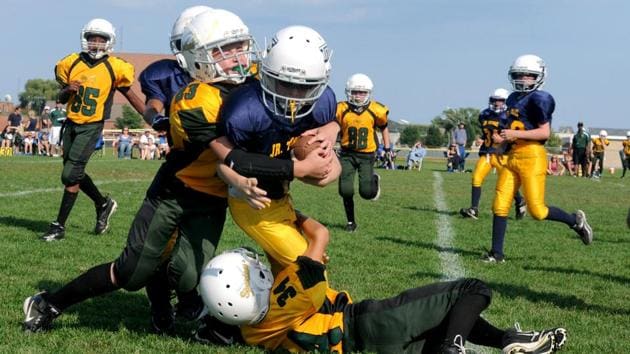Playing sports may reduce mental health issues in adults
Adolescents who play contact sports, including football, are no more likely to experience cognitive impairment, depression or suicidal thoughts in early adulthood than their peers.
Adolescents who play contact sports, including football, are no more likely to experience cognitive impairment, depression or suicidal thoughts in early adulthood than their peers, according to a study.

Researchers from the University of Colorado Boulder in the US conducted the study on nearly 11,000 youth followed for 14 years.
The study, published in the Orthopaedic Journal of Sports Medicine, also found that those who play sports are less likely to suffer from mental health issues by their late 20s to early 30s.
“There is a common perception that there’s a direct causal link between youth contact sports, head injuries and downstream adverse effects like impaired cognitive ability and mental health. We did not find that,” said Adam Bohr, a postdoctoral researcher at the University of Colorado Boulder.
The study comes on the heels of several highly-publicised papers linking sport-related concussion among former professional football players to chronic traumatic encephalopathy (CTE), cognitive decline and mental health issues later in life, the researchers said.
Such reports have led many to question the safety of youth tackle football, and participation is declining nationally, they said.
However, few studies have looked specifically at adolescent participation in contact sports.
The study analysed data from 10,951 participants in the National Longitudinal Study of Adolescent to Adult Health, a representative sample of youth in seventh through 12th grades who have been interviewed and tested repeatedly since 1994.
Participants were categorised into groups: those who, in 1994, said they intended to participate in contact sports; those who intended to play non-contact sports; and those who did not intend to play sports.
After controlling for socioeconomic status, education, race and other factors, the researchers analysed scores through 2008 on word and number recall and questionnaires asking whether participants had been diagnosed with depression or attempted or thought about suicide.
“We were unable to find any meaningful difference between individuals who participated in contact sports and those who participated in non-contact sports. Across the board, across all measures, they looked more or less the same later in life,” said Bohr.
(This story has been published from a wire agency feed without modifications to the text. Only the headline has been changed.)






